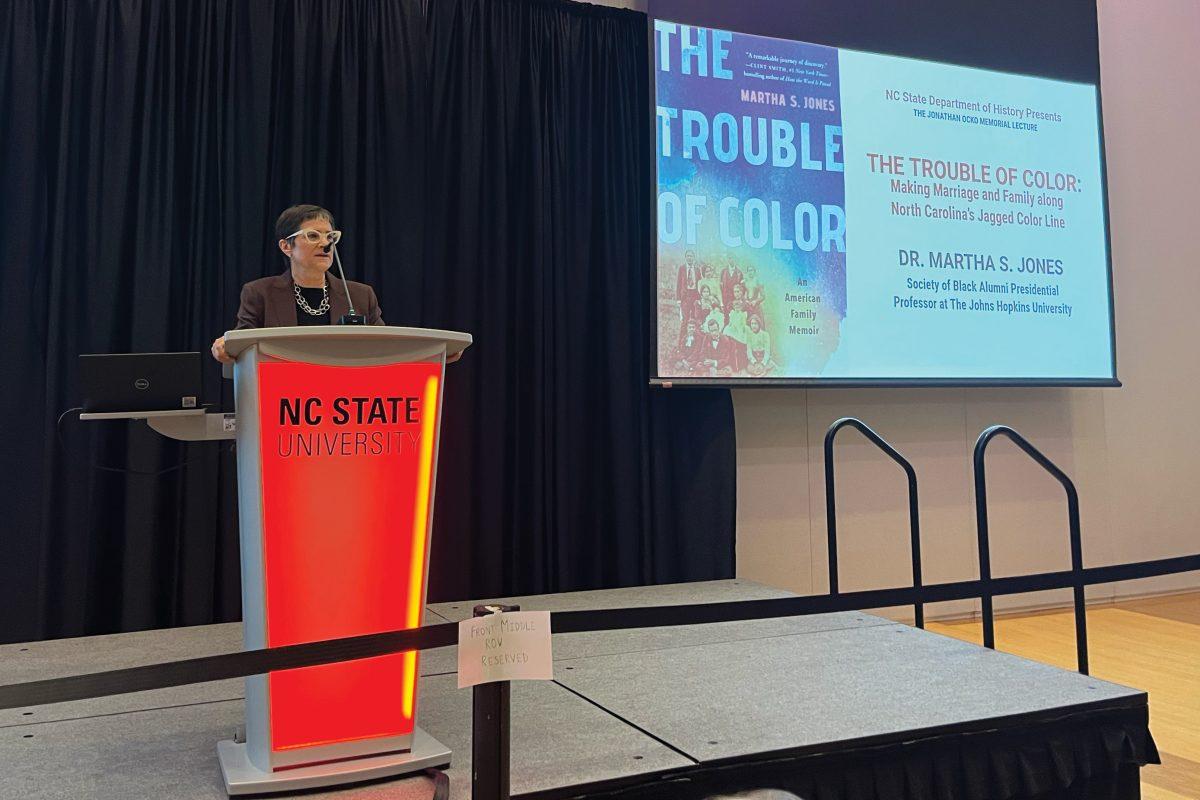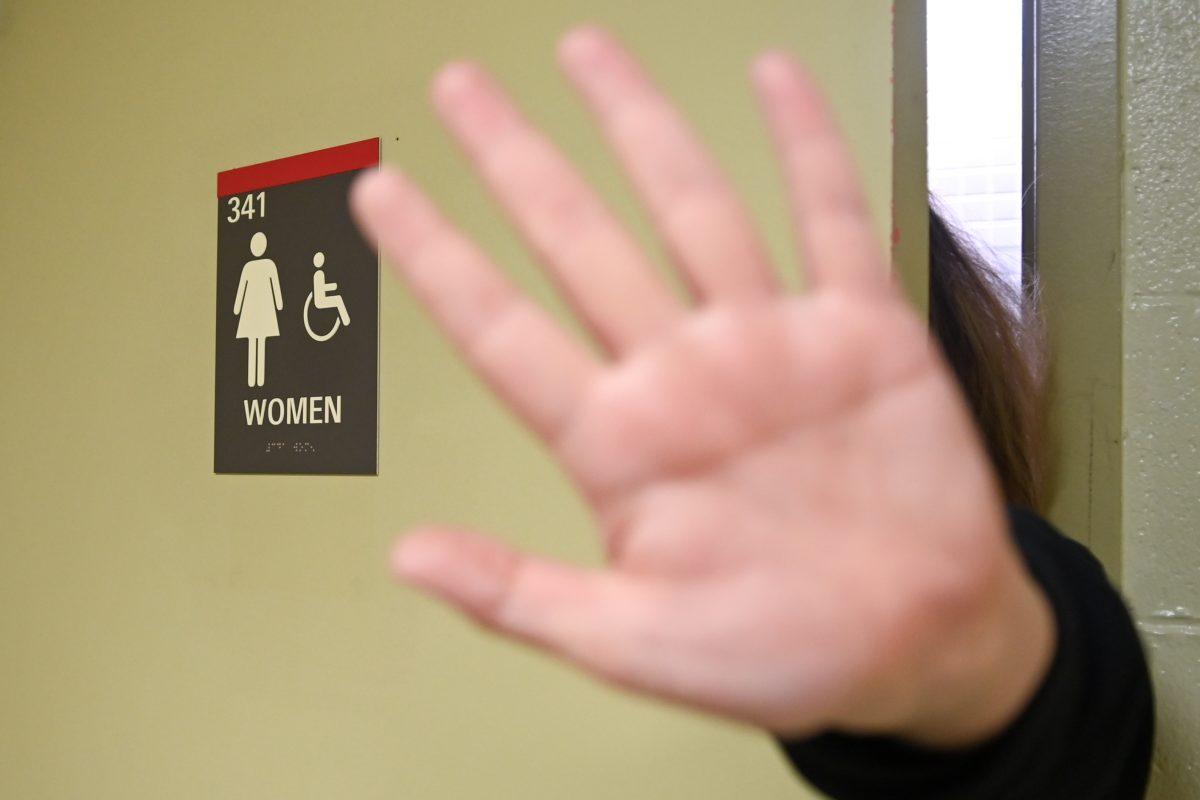According to the Graduate School’s website, graduate assistantships are meant to provide students with funding for their studies plus stipends in exchange for work to give them more time to focus on their education. However, at an anti-fees town hall, graduate students expressed the financial strain they go through when balancing low wages and student fees.
The town hall, organized by the NC State Graduate Worker Union, was a part of the group’s plans to address student fees that cut into graduate students’ pay as workers for the University. Shannon McAvoy, a graduate student in geospatial analytics and co-chair of the union, said the organization has been primarily focused on student fees this year.
“I’m sure you guys are all aware that the student fees are crazy,” McAvoy said. “Because we are employees at the University, we shouldn’t have to pay to work here.”
All students at NC State pay student fees. These fees fund services on campus like student publications and media, university activity organizations, student health services as well as indebtedness from past projects like the renovating of Carmichael Gym. The cost of each fee over an academic year can be found on the Student Services website. The amount graduate students pay per fee varies from a few cents to over $200 for each credit hour. The total cost of graduate student fees from the 2022-23 academic year for more than nine credit hours was $1,302.57.
McAvoy said she wants people to be more aware of where these fees are going and where they are coming from.
“You all pay the student fees, [and] they’re crazy expensive,” McAvoy said. “And I think what a lot of people don’t know is where their money is actually going. So there’s actually like 21 different line items in the student fees. … A lot of them are things that people don’t use, or like we didn’t vote to have to pay off, like the construction loans for [Talley Student Union] and [Carmichael Gym], and pay for like athletics indebtedness.”
Luke Carman, a graduate student in learning and teaching in STEM and co-chair of the union, said student fee increases and decreases are approved by the Board of Trustees each year in November. He said this makes it difficult to address the fees students will have to pay in the coming months for the fall.
“The way it works is it goes through a labyrinth of people who vote on it … then the Board of Trustees votes to recommend it in November, and it gets approved for the next year,” Carman said. “Allegedly, the Board of Trustees has said they only want to address fees in November for the following year. So, turns out, all of us are going to spend at least another $1,300 between now and November. So, that’s kind of an urgent issue that can’t just sit there and wait.”
McAvoy said the group recently tried to speak with the Board of Trustees but was unsuccessful in getting put on the agenda for its April meeting.
“We tried recently to get on their April agenda, and we were denied … in a very strongly worded email written back to us, that basically said, ‘The union is not recognized. We don’t have to talk to you. We don’t want to talk to you,’” McAvoy said.
Grant Forbes, a graduate student in computer science, said some of the student fee allocations are vague and are not used adequately.
“At least the computer science department, it says [student fees] go to … what’s called ‘graduate support,’” Forbes said. “Just don’t charge me. Just give me the money back. I don’t feel supported.”
Forbes also said student fees not being included in graduate assistants’ stated income can prevent them from qualifying for financial assistance programs.
“I found that there were certain situations that an NC State graduate student could plausibly be in where the difference between their actual income…versus their stated income…makes the difference about whether or not they qualify for different sorts of assistance programs,” Forbes said.
Hwa Huang, a graduate student in marine, earth and atmospheric science, said if over 30% of a person’s income is going toward housing, they are considered cost burdened, according to the United States Department of Housing and Urban Development. He said over 70% of his current income is going towards housing.
Huang said, including other costs like groceries and therapy appointments, he is only saving about $100 each month. He said he is fortunate because he has family to assist him, but that isn’t the case for all students working at NC State.
Carman said he and some other students met with the head of their department to discuss low stipends and cost of living. He said they were told to hold fundraisers to get students grocery cards.
“Everybody in the room shared their stories about how expensive it is to be alive in 2023, and it turns out that stipends of $20,500 is not enough to live,” Carman said. “And the one concrete suggestion was we should do a fundraiser, so that people can get grocery cards. … We’re all highly skilled, highly qualified workers, right? Our work does make the University run, and it’s insulting that our bosses are willing to give us grocery cards and not pay us what we’re worth.”
Alden Sears, a graduate student in plant biology, said talking to administrators and leaders across the University about making changes to student fees and stipends is important because it may be deterring students from participating in graduate assistant programs.
“I’ve had multiple conversations with our director of Graduate Programs, and he’s been really dismayed this semester, in particular, because we had a recruitment event a month ago and our department is probably going to have a cohort of zero next year, which is really embarrassing for them,” Sears said. “So, I think that talking to those people, and nicely applying pressure on points would be really useful for getting them on our side.”
McAvoy said students interested in participating in the union’s efforts to get stipends increased and to get rid of student fees can join the anti-fees Working Group’s weekly Zoom meeting every Thursday. Reach out to ncsugradworkers@gmail.com for more information.












